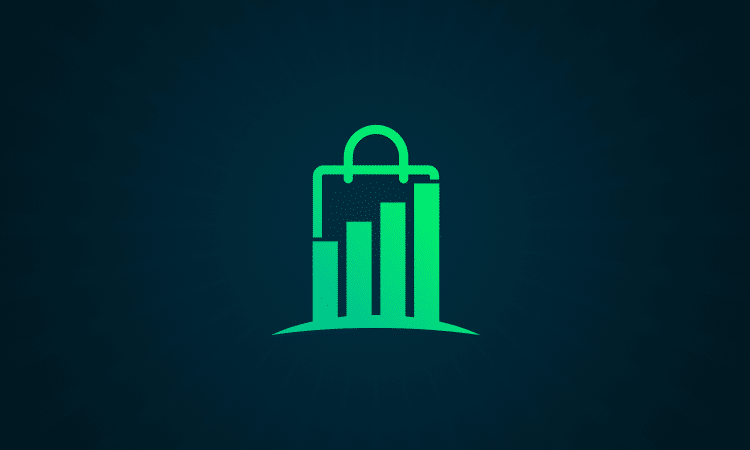Navigate This Research Article
Introduction
Top Product Ranking Factors for Google Organic Search by Category
Top 5 Specific Product Ranking Factors for Google Organic Search
Top 20 Specific Product Ranking Factors for Google Organic Search
Top Product Ranking Factors for Google Shopping Search by Category
Top 5 Specific Product Ranking Factors for Google Organic Shopping
Top 20 Specific Product Ranking Factors for Google Organic Shopping
Top Product Ranking Factors for Google Organic Search When SEOs Only Select Their Top 10 Factors
Top Product Ranking Factors for Google Shopping Search When SEOs Only Select Their Top 10 Factors
Ranking Advice and Commentary from Ecommerce SEOs
Methodology
When Google opened up their Shopping engine to organic listings in 2020 it marked a major shift in ways small ecommerce businesses could compete against major established brands such as Amazon, Walmart, and Wayfair. This new area of organic search though is not very well understood and we wanted to gather insights from the SEO community on what factors are believed to impact rankings the most in this new organic experience as well as in Google’s standard search engine when it comes to ranking a product page or product listing in the results.
These are the ranking factors or signals most important to ranking a product itself highly in Google’s standard search engine and in the new organic Shopping search experience according to top SEOs with recent experience in the field.
It is my hope and the hope of my staff and those SEOs who graciously helped us with this survey that the data below helps you better prioritize your ecommerce SEO efforts and helps power the success of your ecommerce business.
Product Ranking Factors for Ecommerce SEO in 2021
Top Product Ranking Factors for Google Organic Search by Category
Our first question asked SEOs and ecommerce marketers to select all of the the factors that impacted a product page ranking higher in Google’s standard organic search. Respondents were allowed to select all of the specific factors they believed had a positive impact on these rankings. Each specific factor was grouped into a category with other factors which helped us create a list of types of ranking factors or signals in order of most important to least important.
Top product ranking factors by category in order
- Inbound Links – 29%
- Product Information – 20%
- Technical SEO – 17%
- Reviews / Ratings – 17%
- Social Signals – 6%
- Product Media – 4%
- Other Signals – 4%
- Other Site Signals – 3%
Top 5 Specific Product Ranking Factors for Google Organic Search
When looking at the specific responses to this question our expert and highly experienced respondents clearly selected 5 ranking factors for products as more important than others. This is broken down by percentage of total respondents who selected the specific factor.
- Keywords in the name of the product – 81.82%
- Keywords in reviews of the product – 72.73%
- Keywords in the title tag of a product – 72.73%
- Number of inbound links directly to the product – 72.73%
- Internal links from similar products on the site – 68.18%
Top 20 Specific Product Ranking Factors for Google Organic Search
And here are the top 20 specific ranking factors
- Keywords in the name of the product – 81.82%
- Keywords in reviews of the product – 72.73%
- Keywords in the title tag of a product – 72.73%
- Number of inbound links directly to the product – 72.73%
- Internal links from similar products on the site – 68.18%
- Keywords in the product description – 68.18%
- Page load speed of the product page – 68.18%
- Anchor text on inbound links to the product – 63.64%
- Click-through rate from SERPs to the product page – 63.64%
- Number of links to the product from trusted journalistic sources – 63.64%
- Product availability – 59.09%
- Total number of links to the website from trusted journalistic sources – 59.09%
- Keywords in the meta description of a product – 54.55%
- Category / Categories the product is in – 50.00%
- Average Rating of the product – 50.00%
- Number of reviews of the product – 50.00%
- Linking domain aggregate value – 45.45%
- Linking domain quantity – 45.45%
- Editorial reviews of the product cited on the product page – 40.91%
- Number of links to the homepage of the website – 40.91%
Top Product Ranking Factors for Google Shopping Search by Category
We asked our expert respondents to select all of the ranking factors they believe impacted how a product ranked in Google’s new organic shopping search which allowed us to group those ranking factors into categories and highlight the most important categories for product rankings in the shopping search experience. Unsurprisingly factors that are related to Google’s Shopping Feed (Merchant Center) are the top category as this is a critical component for being included in the Shopping search much like a Google My Business listing is a critical component for a local business to appear on Google Maps.
Top product ranking factors by category in order
- Google Shopping Feed – 27%
- Product Information – 24%
- Reviews / Ratings – 14%
- Inbound Links – 11%
- Technical SEO – 10%
- Other Signals – 4%
- Other Site Signals – 4%
- Product Media – 3%
- Social Signals – 3%
Top 5 Specific Product Ranking Factors for Google Organic Shopping
- Availability (Google Shopping Feed) – 72.73%
- Product Title (Google Shopping Feed) – 72.73%
- Keywords in the product description – 68.18%
- Average Rating of the product – 59.09%
- Country of Sale (Google Shopping Feed) – 59.09%
Top 20 Specific Product Ranking Factors for Google Organic Shopping
- Availability (Google Shopping Feed) – 72.73%
- Product Title (Google Shopping Feed) – 72.73%
- Keywords in the product description – 68.18%
- Average Rating of the product – 59.09%
- Country of Sale (Google Shopping Feed) – 59.09%
- Keywords in the name of the product – 59.09%
- Product Availability – 59.09%
- Page load speed of the product page – 54.55%
- Click-through rate from SERPs to the product page – 50.00%
- Keywords in the title tag of a product – 45.45%
- Language (Google Shopping Feed) – 45.45%
- Last updated date (Google Shopping Feed) – 40.91%
- Number of reviews of the product – 40.91%
- Condition (Google Shopping Feed) – 36.36%
- Price of the product – 36.36%
- Category / Categories the product is in – 31.82%
- Keywords in reviews of the product – 31.82%
- Recency of reviews or ratings – 31.82%
- Linking domain quantity – 27.27%
- Number of inbound links directly to the product – 27.27%
Top Product Ranking Factors for Google Organic Search When SEOs Only Select Their Top 10 Factors
Finally to figure out importance we also asked our SEOs and ecommerce marketing experts to only select their top 10 ranking factors for a product in Google Organic Search. While our previous question allowed us to see collectively what factors SEOs considered important asking a second question this way should validate the aggregate data from our previous question, challenge it, or add to it.
When looking at this data broken down by our ranking factor categories SEOs tend to put more emphasis on inbound links and technical SEO than the product related signals such as descriptions, reviews, and media.
Top product ranking factors by category when SEOs only select their top 10 overall ranking factors in order
- Inbound Links – 40%
- Technical SEO – 19%
- Product Information – 16%
- Reviews / Ratings – 10%
- Other Signals – 5%
- Product Media – 4%
- Social Signals – 3%
- Other Site Signals – 3%
Top 5 specific product ranking factors for Google Organic Search when SEOs only select their top 10 overall ranking factors
- Keywords in the product description – 63.64%
- Number of links to the product from trusted journalistic sources – 54.55%
- Click-through rate from SERPs to the product page – 50.00%
- Keywords in the name of the product – 50.00%
- Page load speed of the product page – 50.00%
Top 20 specific product ranking factors for Google Organic Search when SEOs only select their top 10 overall ranking factors
- Keywords in the product description – 63.64%
- Number of links to the product from trusted journalistic sources – 54.55%
- Click-through rate from SERPs to the product page – 50.00%
- Keywords in the name of the product – 50.00%
- Page load speed of the product page – 50.00%
- Anchor text on inbound links to the product – 45.45%
- Keywords in the title tag of a product – 45.45%
- Number of inbound links directly to the product – 45.45%
- Total number of links to the website from trusted journalistic sources – 45.45%
- Internal links from similar products on the site – 40.91%
- Linking domain aggregate value – 40.91%
- Linking domain quantity – 40.91%
- Number of links to the homepage of the website – 40.91%
- Keywords in the meta description of a product – 36.36%
- Keywords in reviews of the product – 31.82%
- Linking document aggregate value – 31.82%
- Customer images or videos of the product – 22.73%
- Recency of reviews or ratings – 22.73%
- Linking document quantity – 18.18%
- Number of photos or videos of the product – 18.18%
Top Product Ranking Factors for Google Shopping Search When SEOs Only Select Their Top 10 Factors
Top product ranking factors for Google Shopping by category when SEOs only select their top 10 overall ranking factors in order
- Google Shopping Feed – 26%
- Product Information – 23%
- Reviews / Ratings – 19%
- Technical SEO – 14%
- Inbound Links – 9%
- Product Media – 3%
- Other Signals – 2%
- Other Site Signals – 2%
- Social Signals – 2%
Top 5 specific product ranking factors for Google Shopping when SEOs only select their top 10 overall ranking factors
- Keywords in the product description – 63.64%
- Product Title (Google Shopping Feed) – 59.09%
- Availability (Google Shopping Feed) – 54.55%
- Recency of reviews or ratings – 50.00%
- Average Rating of the product – 45.45%
Top 20 specific product ranking factors for Google Shopping when SEOs only select their top 10 overall ranking factors
- Keywords in the product description – 63.64%
- Product Title (Google Shopping Feed) – 59.09%
- Availability (Google Shopping Feed) – 54.55%
- Recency of reviews or ratings – 50.00%
- Average Rating of the product – 45.45%
- Number of reviews of the product – 45.45%
- Keywords in the name of the product – 40.91%
- Country of Sale (Google Shopping Feed) – 36.36%
- Keywords in the meta description of a product – 36.36%
- Page load speed of the product page – 36.36%
- Language (Google Shopping Feed) – 31.82%
- Product Availability – 31.82%
- Keywords in the title tag of a product – 31.82%
- Condition (Google Shopping Feed) – 27.27%
- Last updated date (Google Shopping Feed) – 27.27%
- Category / Categories the product is in – 22.73%
- Price of the product – 22.73%
- Keywords in reviews of the product – 22.73%
- Linking domain quantity – 18.18%
- Number of links to the product from trusted journalistic sources – 18.18%
Ranking Advice and Commentary from Ecommerce SEOs who participated
Todd Perry – Outdoor Gadget Review
“You’ll need to study the most common search terms used by people searching for your items to find the best keywords to target. Using Google’s automatic recommendations and “people even ask” features, you can find keywords. These give you a good idea of which keywords are the most common. You should also look at your popular rivals’ SEO strategies and see what language they’re using and imitate them. Amazon is just as popular as Google for e-commerce searches. Examining Amazon’s keyword tactics will help you learn from the best. Go to Amazon and type in keywords that define your products.”
Oliver Andrews – OA Design Services
“Make sure your content is on point. Good copy, great photos. This will lead to higher click-through rates and will allow you to target keywords more effectively. For e-commerce, that means writing thorough, vivid product descriptions with beautiful, eye-catching photography and plenty of reviews to help visitors make a purchase decision. It also means making it easy for visitors to purchase by making the buttons big enough, keeping your site jam-free, and showing social proof of your best products.”
Nick Chernets – Data for SEO
The most important thing for an ecommerce website’s ranking is thorough keyword research. Once you choose the right keywords, it’s much easier to rank well. One of the very useful tools for this type of research is the Amazon Keyword Tool that shows all variants of a specific word. Also, it’s good to research keywords through a competitor’s list. You can simply find several websites that have a similar offer like yourself and check which keywords they are using. This is an important part of the analysis as you will get a better perspective on what people search and how your products fit in the story. The goal is to choose a keyword that is strong but not too much because you want to be able to rank for it. this can be quite hard for popular products but it’s not impossible to find a combination of keywords that people organically search for and that leads directly to your products.
Max Allegro – Intuitive Digital
“One factor that helps with product ranking is image optimization. Making sure your product images are optimized for file size, file name, and alt text is essential to having your product pages perform better. Avoid putting unoptimized, or excessively large images on your site, as it will slow your site down. Adding a descriptive file name can also help your chances of ranking in Google image search. Lastly, alt text is one of the most important image SEO factors and helps search engines understand what an image is all about. Adding relevant, ADA-compliant, and keyword-driven alt text is an essential tactic for ecommerce seo.”
William Alvarez – Catalyst Digital
“Rewrite all the product information as much as you can to make it unique once your receive it from manufacturers.”
Isaac Bullen – 3 White Hats
“I think that things like product ratings, reviews, availability, etc. all play a vital part in ranking higher in the results. A lot of ecommerce site owners we work with don’t know how to get these things showing up in the SERPs, so we do a lot of schema markup for clients. For sites on Shopify, the Schema Plus for SEO app is a great way to take care of schema markup. For sites on WordPress using Woocommerce, some good options include the Yoast WooCommerce SEO plugin and the E-commerce SEO plugin by WordLift.”
Jack Shepler – Ayokay
“Create unique, SEO-optimized content for every single product page on the site. When a brand has a lot of products, it’s tempting to either use a standard description for everything or to half-ass it and only properly do some of the products pages. Resist this urge. Make sure to take you time writing these on-page descriptions so that they are well-written. Include your target keywords as well as some LSI keywords. And if you’re selling the same products on Amazon, make sure that you have unique descriptions across the two sites and don’t just use the same product copy on Amazon and your site.”
Michael Anderson – SIGNAL+POWER
“Spend time improving product title tags (for organic search ranking) and product titles within your Google Shopping feed (for Google Shopping search rankings).”
Charlie Worrall – Imaginaire
“One thing that so many SEOs and designers will overlook is the importance of a product code. If your product pages have product codes on them and you’re actively implementing an SEO strategy, anyone that searches for a product code is likely to find their way to your website and go directly to a product page. This is great because so many people just search for product codes when they need something in particular. For example, if you’re working on a car and you need to purchase a certain product but don’t know the name of that product you can just search for the product number on the piece itself.
The best thing about this is that so many people overlook it as a valuable piece of information to have on the page. This means that it’s often a really low competition target for each product code and should be easier to rank for.”
Sam Wright – Blink SEO
“I’d always be wary of declaring something a definite ranking factor outside well-known elements such as page titles in terms of SEO. Google have even said multiple times that structured data, for example, does not directly impact rankings. It’s important to get stuff like this right – FAQ schema in particular can work brilliantly – but the most important element by far is the quality of your product description. The approach you take here will depend on your business – DTC retailers may focus on their brand story, or pushing unique attributes, while multi-brand stores could instead concentrate on providing detail and insight that their competitors don’t have. We’ve already seen that Google’s product review update punishes sites that don’t add any value with their review content. The same principle applies to product descriptions – the more you can show that your site has the best content on each product, the better. If you take this approach it’s likely that you will tick all the right boxes in terms of ranking factors, both direct and indirect.”
Kaleb Ufton – EKOH Marketing
“The backlinks on websites to other products is another important factor. This can be seen by the fact that these pages are usually ranked higher for search engines, and this draws in more traffic from potential customers. This means that it’s not only what you say about your product online but also how many people link to them!
There is, of course, a whole heap of technical factors including metadata, for Google specifically schema is very important.”
John Frigo – BestPriceNutrition.Com
“One area I think many businesses are lacking is product reviews, do something to encourage customers to leave reviews.”
Geraldine Orentas – Gerie Media
“Spend most of your time structuring and getting reviews on your site. Make sure you’re using white hat tactics to receive new, genuine, and valuable reviews that include signals like “verified buyer,” “sponsored,” or “gifted.” Add UGC content with photos, videos, and links to their social accounts to improve credibility and build consumer trust.”
Definitions
Google Organic Search / Google Search – The standard search engine accessed at Google.com and the more classic results from the web.
Google Shopping Search / Organic Shopping – The shipping search engine accessed by users on the “shopping” tab of Google’s website where data comes from information entered by a merchant or brand into Google’s Merchant Center.
Methodology
We surveyed 35 SEOs and ecommerce marketers about what they thought were the ranking factors for each organic experience and collected insights and advice from 18 of these SEOs. We gathered the responses through late-2020 and early 2021. To gather responses we used a variety of online channels including Reddit, Twitter, Facebook Groups, and HARO to help us find SEOs to contribute to this survey, no standard survey lists or communities were used as we sought out those with recent experience in the field. We excluded 13 responses for not being of high enough quality which we defined as not being involved enough with ecommerce SEO, offering low quality insights simply to gain a link, or failing other antispam measures.
The results of this survey taken by vetted subject matter experts are the data highlighted in this study.
The data should be considered collective opinions of SEOs who work in ecommerce frequently and during the period under study and not exact ranking factor signal weight or strength as applied by Google’s series of algorithms.
We did not ask specifically about “Expertise, Authoritativeness, Trustworthiness” also known to SEOs as “E-A-T” and instead attempted to discern factors that might lead to this giving SEOs a more generic option of “Brand of the product creator” to select if they wished to collectively identify signals of a trusted or authoritative brand of merchandise.








